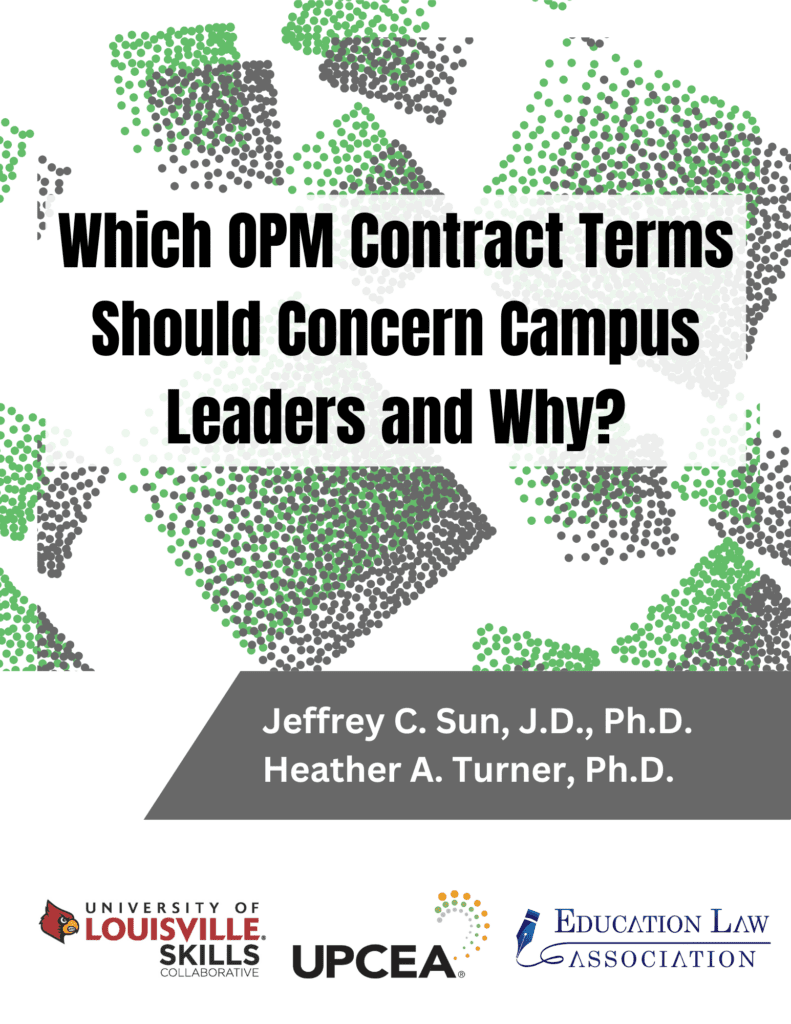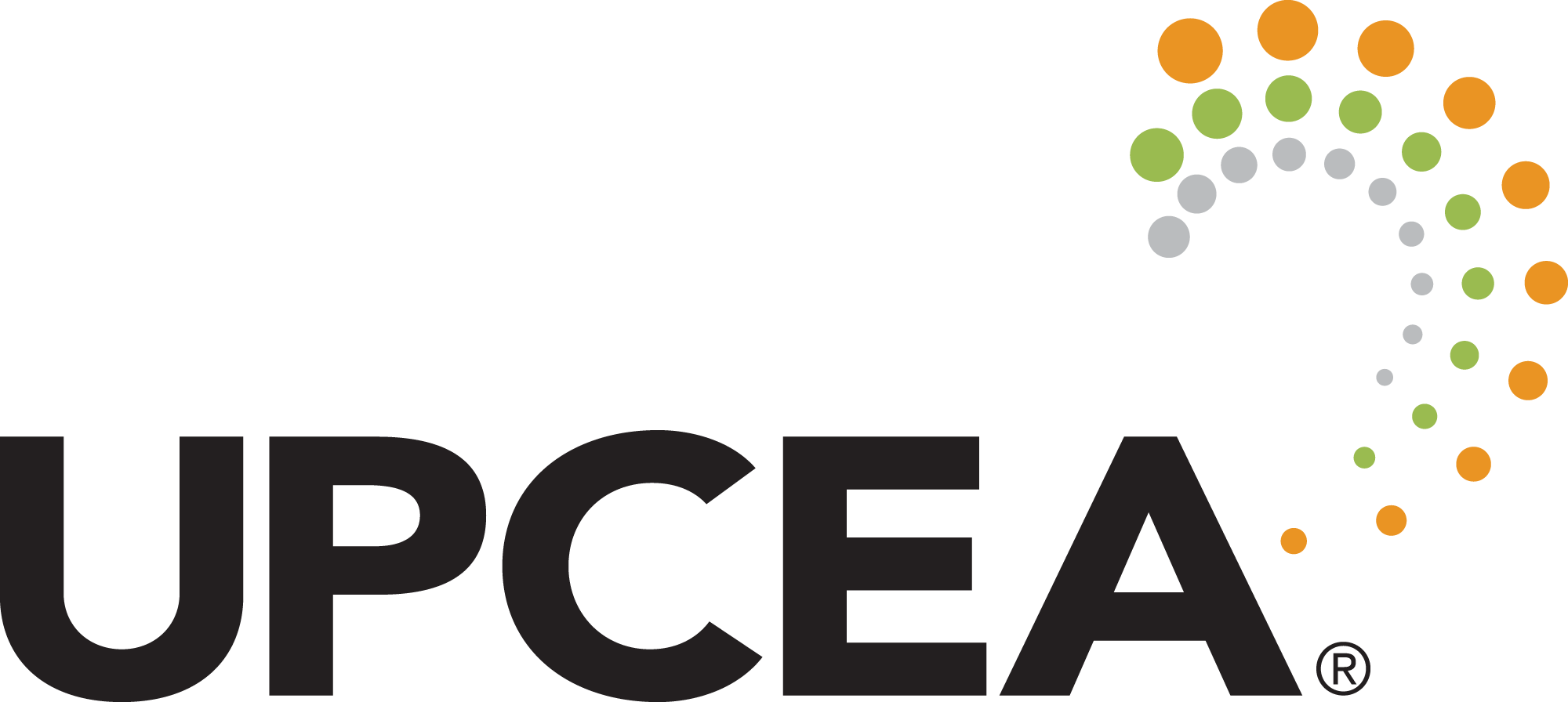Online program managers (OPMs) remain under scrutiny for their business practices. In January 2025, the Department of Education (ED) issued new guidance for third-party servicers (TPSs), explicitly calling out OPMs for misrepresenting themselves to students—an aspect not addressed in previous TPS guidance. Last year, we raised similar concerns about OPM white labeling, and this year, we reiterated that online students deserve transparency in their educational experiences. While federal regulations may support these efforts, the true impact of an OPM’s relationship with students and universities ultimately hinges on the contracting process.
When deciding whether to partner with an online program manager (OPM), Chief Online Learning Officers (COLOs) have a lot to consider. This process usually starts with evaluating the university’s current online learning capabilities, followed by issuing a request for proposals (RFP) to gather options from different OPMs. At this stage, COLOs often focus on how well each company aligns with their university’s mission, identity, and values—a crucial factor highlighted in our previous research. Another important step is assessing the university’s own operations, which helps determine whether the institution can address its online learning needs in-house or if it truly requires external support to overcome capability and capacity challenges.

Ultimately, the success of the partnership often hinges on the details of the contracting process. The contract serves as the foundation upon which parties may build a productive relationship. With contracts, especially those involving external partnerships, clarity and foresight are essential, yet also difficult to anticipate. Our previous research about university agreements with OPMs reveal that contract terms and definitions dictate the extent to which the university may act in an agile and responsive manner when circumstances change.
We recently spoke with Chief Online Learning Officers (COLOs) to hear about their experiences with OPM contracting, and several key concerns came up. For example, COLOs emphasized the importance of addressing specific details like service-level terms; fees, payments, and penalties; performance monitoring; termination clauses; and contractual scope. They raised questions about whether the OPM could deliver customized, responsive designs tailored to their universities’ needs and if they could consistently maintain a service quality that aligned with the university’s image. COLOs also flagged potential risks, such as contractual clauses that might limit their university’s rights or create challenges if they needed to terminate or modify the agreement due to unmet performance goals or changes in organizational priorities.
These contract terms are not just boilerplate—they are opportunities to align expectations and reduce future misunderstandings. By laying this groundwork, campus leaders can position their universities to maintain high-quality outcomes, protect their interests, and build partnerships that evolve over time. Yet despite the importance of contracting, less than half of the COLOs we spoke with felt confident about crafting strong outsourcing contracts. Some even shared that their legal counsel was not as helpful as they had hoped, often due to limited familiarity with OPM arrangements or inability to anticipate and address inequitable, confusing, or unintended contractual terms.
In this brief, we present key contract terms that campus leaders should consider when contracting with OPMs. We focused on three major areas — finances, academics, and performance — based on COLO reports of contract terms that presented the most challenging areas to anticipate, negotiate, or frame. For each of these areas, we provide example contract terms that come from our review of 48 contracts between OPMs and universities across the US. For each set of terms, we offer one example that should be avoided (highlighted in red), one that is okay but could use some adjustments (in yellow), and one that is most beneficial to the university (in green). This brief should serve as a resource for any campus member involved in contracting with third-party vendors, as many of the terms have applicability to outsourcing beyond OPMs.
Authors
Jeffrey C. Sun, J.D., Ph.D. is Distinguished University Professor of Higher Education and Law, Associate Dean for Research and Innovation, and Executive Director of the SKILLS Collaborative at the University of Louisville. He is also Counsel at Manley Burke LPA.
Heather A. Turner, Ph.D. is Director of Research and Policy for the SKILLS Collaborative and Adjunct Assistant Professor of Higher Education at the University of Louisville.
Publication Details
A Joint Publication by the University of Louisville SKILLS Collaborative, Education Law Association, and UPCEA (The Online and Professional Education Association)

About UPCEA
UPCEA is the online and professional education association. Our members are continuously reinventing higher education, positively impacting millions of lives. We proudly lead and support them through cutting edge research, professional development, networking and mentorship, conferences and seminars, and stakeholder advocacy. Our collaborative, entrepreneurial community brings together decision makers and influencers in education, industry, research, and policy interested in improving educational access and outcomes.
© 2025 UPCEA
